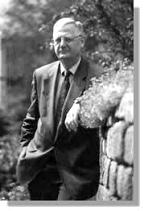The brilliant Tübingen theologian Eberhard Jüngel is still relatively neglected in English-language scholarship. Still, he does continue to attract a modest number of doctoral dissertations. Here’s a list of the dissertations on his theology since 1990:
The ecclesiology of God: The role of the divine congregation on the human congregation
Frederickson, Scott P., PhD
LUTHER SEMINARY, 2001, 192 pages
Divine simplicity: Theistic reconstruction in Eberhard Jüngel's trinitarian 'Glaubenslehre'
DeHart, Paul Jeffry, PhD
THE UNIVERSITY OF CHICAGO, 1997, 262 pages
[Now revised and published as a book]
Eberhard Jüngel's theological anthropology in light of his Christology
Neufeldt-Fast, Arnold Victor, PhD
UNIVERSITY OF ST. MICHAEL'S COLLEGE (CANADA), 1996, 500 pages
The 'theologia crucis' in the contest of the modernity: The relationship between the cross and modernity in the works of Eberhard Jüngel, Hans Urs von Balthasar and Georg Wilhelm Friedrich Hegel
Toniolo, Andrea, ThD
PONTIFICIA UNIVERSITA GREGORIANA (VATICAN CITY), 1996, 285 pages
Disputation and interruption: Truth, trinity and the death of Christ in Wolfhart Pannenberg and Eberhard Jüngel
Case, Jonathan P., ThD
LUTHER SEMINARY, 1995, 256 pages
[An online JCTR article based on this thesis is available here]
Toward divine relationality: Eberhard Jüngel's new trinitarian, postmetaphysical approach
Mattes, Mark Christopher, PhD
THE UNIVERSITY OF CHICAGO, 1995, 396 pages
[Mattes has now published a book with a substantial section on Jüngel’s theology]
Creation, contingency and divine presence in the theologies of Thomas F. Torrance and Eberhard Jüngel
Spjuth, Roland, ThD
LUNDS UNIVERSITET (SWEDEN), 1995, 242 pages
[Now revised and published as a book]
Considering the rupture of the Holocaust: A recasting of Emil Fackenheim's conception of the Holocaust as absolute rupture with reference to the theology of Eberhard Jüngel
Ziegler, Philip Gordon, MA
UNIVERSITY OF ST. MICHAEL'S COLLEGE (CANADA), 1995, 124 pages
Infinity in finitude: The Trinity in process theism and Eberhard Jüngel
Pedraja, Luis Gregorio, PhD
UNIVERSITY OF VIRGINIA, 1994, 311 pages
Analogy and proclamation: The struggle over God's hiddenness in the theology of Martin Luther and Eberhard Jüngel
Paulson, Steven D., ThD
LUTHERAN SCHOOL OF THEOLOGY AT CHICAGO, 1992, 573 pages
The Cross of Jesus and the Being of God: The fundamentation of a theology of the Crucified as basis of the Christian concept of God in the works of E. Jüngel
Rodriguez G., Fernando, ThD
PONTIFICIA UNIVERSITA GREGORIANA (VATICAN CITY), 1991, 528 pages
God is Love: The contemporary theological movement of interpreting the Trinity as God's relational being
Schott, Faye Ellen, ThD
LUTHERAN SCHOOL OF THEOLOGY AT CHICAGO, 1990, 425 pages

 Unfortunately, though, he is also by far the most difficult theological thinker in recent times. He has his own unique and highly refined conceptuality, which draws especially on the philosophy of Heidegger, but also on the theology of Barth, the philosophy of Hegel, and the hermeneutic of Ernst Fuchs and Gerhard Ebeling. At times it can take an extraordinary effort to penetrate this conceptuality and to grasp Jüngel’s point. In addition, Jüngel has never shown even the slightest interest in English-language theology, and he is even said to have boasted that his own (exceedingly German) theology is untranslatable into English. (Happily, though, translators like Darrell Guder, John Webster and Jeffrey Cayzer have
Unfortunately, though, he is also by far the most difficult theological thinker in recent times. He has his own unique and highly refined conceptuality, which draws especially on the philosophy of Heidegger, but also on the theology of Barth, the philosophy of Hegel, and the hermeneutic of Ernst Fuchs and Gerhard Ebeling. At times it can take an extraordinary effort to penetrate this conceptuality and to grasp Jüngel’s point. In addition, Jüngel has never shown even the slightest interest in English-language theology, and he is even said to have boasted that his own (exceedingly German) theology is untranslatable into English. (Happily, though, translators like Darrell Guder, John Webster and Jeffrey Cayzer have 





